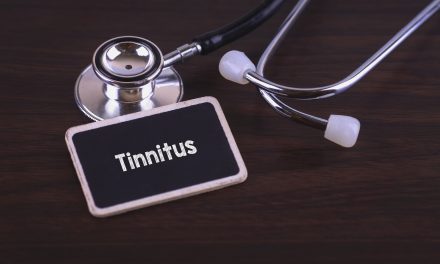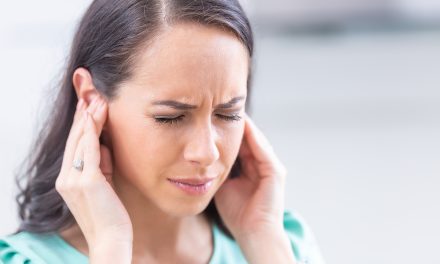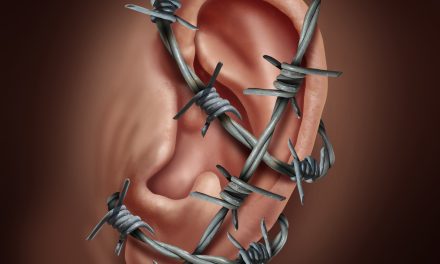Tinnitus is a common condition affecting millions of people worldwide. It manifests as ringing, hissing, buzzing, or other persistent noise in the ear without an external source. The experience can range from a mild annoyance to a severely debilitating condition, with varying degrees of impact on daily life and well-being.
Understanding and recognizing tinnitus symptoms is the first step in addressing the problem. Once identified, various factors can contribute to tinnitus, including hearing loss, exposure to loud noises, and certain medical conditions. Exploring the different diagnostic procedures and treatment options available to alleviate or manage the symptoms is crucial. By further examining the role of lifestyle factors, alternative therapies, and ongoing research, individuals suffering from tinnitus can find coping strategies and potentially reduce their symptoms over time.
Key Takeaways
- Identifying and understanding tinnitus symptoms is essential for appropriate management
- Diagnostic procedures and tailored treatment plans can help alleviate tinnitus-related distress
- Exploring lifestyle factors, alternative therapies, and emerging research may offer additional relief and coping strategies
Understanding Tinnitus
Tinnitus is a condition where an individual experiences the sensation of sound, such as ringing, buzzing, hissing, or whistling, with no external source. It can be a temporary or chronic issue affecting many sufferers’ quality of life. There are several possible causes for tinnitus and various types that can be classified depending on the characteristics of the sound heard.
Causes of Tinnitus
The primary cause of tinnitus is damage to the inner ear, specifically the cochlea. This damage can be due to aging, exposure to loud noises, or certain medical conditions. Other factors that may contribute to tinnitus include:
- Inner ear damage – Exposure to loud sounds or aging can damage the cochlea’s hair cells, resulting in tinnitus.
- Earwax buildup – Excessive earwax can sometimes cause a blockage, leading to tinnitus.
- Medications – Some medications, such as antibiotics, antidepressants, or even high doses of aspirin, can cause or worsen tinnitus.
- Physical injuries – Head or neck injuries can affect the inner ear, leading to tinnitus.
Moreover, chronic medical conditions, such as thyroid problems or heart disease, can also play a role in the development of tinnitus.
Types of Tinnitus
There are two primary types of tinnitus: subjective and objective. Within these classifications, one might experience pulsatile tinnitus, a subtype characterized by a rhythmic sound that matches the individual’s heartbeat.
Subjective tinnitus is the most common form and is only heard by the person affected. It can be caused by issues in the outer, middle, or inner ear and problems in the auditory cortex.
Objective tinnitus – This type is less common and can be heard by a doctor during an examination. It may result from muscle contractions, blood vessel problems, or abnormalities in the bones in the middle ear.
Pulsatile tinnitus – Experienced as a rhythmic sound in sync with the heartbeat, this subtype can be due to high blood pressure, blockages in blood vessels, or other vascular issues.
Understanding the causes and types of tinnitus is essential for determining the appropriate treatment and management options. While it may not always be possible to eliminate the sounds, there are various approaches individuals can take to minimize their impact on daily life.
Recognizing Tinnitus Symptoms
Physical Symptoms
Tinnitus is characterized by a constant or intermittent noise in the ears, such as ringing, roaring, buzzing, hissing, or whistling. This noise can be experienced in one or both ears and may vary in pitch and intensity. It’s essential to be aware of the physical symptoms, as identifying them early can help manage the condition more effectively. Some common physical symptoms of tinnitus include:
- Ringing: A high-pitched, continuous sound in the ears
- Roaring: A loud, low-pitched, and overwhelming sound
- Buzzing: Short, repetitive sounds, similar to that of an insect
- Hissing: A continuous, high-frequency sound
- Whistling: A short, high-pitched musical sound
Psychological Impact
The noise generated by tinnitus can not only cause physical discomfort but also have a profound psychological impact on a person’s well-being, affecting their sleep and quality of life and leading to depression and anxiety.
Sleep disturbances: The persistent noise in the ears can make it difficult for individuals to fall or stay asleep, leading to a lack of restorative sleep. This, in turn, can cause fatigue and irritability during the day.
Depression: The constant noise can significantly affect an individual’s emotional well-being, leading to feelings of sadness, hopelessness, and helplessness. As a result, tinnitus may contribute to the development of depression in some cases.
Anxiety: The uncertainty of tinnitus can cause stress, worry, and fear. Moreover, the constant, intrusive noise might exacerbate existing anxiety disorders or even lead to the development of new ones.
Quality of life: Tinnitus can negatively impact a person’s overall quality of life, making work, social interactions, and leisure time more challenging and less enjoyable.
To minimize the psychological impact of tinnitus, it’s crucial to consult with a healthcare professional to discuss appropriate coping strategies and treatment options.
Impact of Lifestyle Factors
Diet and Tinnitus
Diet can play an essential role in managing tinnitus. Certain foods and beverages, such as caffeine and alcohol, can exacerbate tinnitus symptoms. Reducing the intake of these substances may help alleviate the severity of tinnitus.
Here are some dietary recommendations to consider:
- Limit caffeine consumption: Common sources of caffeine include coffee, tea, soda, and chocolate. Lowering caffeine intake might help decrease tinnitus symptoms.
- Reduce alcohol consumption: Alcohol can increase blood pressure, which can worsen tinnitus. Consuming alcohol moderately or avoiding it altogether may help reduce the severity of tinnitus.
- Monitor salt intake: High salt intake can lead to high blood pressure and contribute to tinnitus. Consider limiting salt intake by reducing processed and salty foods from your diet.
Stress and Tinnitus
Stress is a significant factor that can influence tinnitus. Managing stress effectively can reduce the negative impacts of tinnitus on daily life. Here are some stress management techniques that may help:
- Relaxation exercises: Deep breathing, progressive muscle relaxation, and meditation can help lower stress levels and potentially decrease tinnitus symptoms.
- Physical activity: Regular exercise can help reduce stress and improve overall well-being, which may contribute to better tinnitus management.
- Sleep hygiene: Ensuring a consistent sleep schedule and creating a calming sleep environment can help reduce stress and improve sleep quality. Proper sleep is essential for managing tinnitus symptoms effectively.
By addressing these lifestyle factors, individuals can work towards mitigating the impact of tinnitus on their daily lives. Discussing these approaches with a healthcare professional to provide personalized guidance based on individual needs and experiences is essential.
Diagnostic Procedures
Hearing Assessment
A crucial step in diagnosing tinnitus is a thorough hearing assessment conducted by an audiologist or a doctor. The specialist will evaluate the patient’s hearing ability through various tests during this examination. It is essential to identify any underlying hearing problems that could be causing the tinnitus, such as sensorineural hearing loss.
Some standard tests performed during a hearing assessment include:
- Pure-tone audiometry: This test measures the patient’s ability to hear different pitches and loudness levels.
- Speech audiometry evaluates individuals’ capacity to comprehend speech at different volumes and environments.
- Tympanometry: This examination measures the eardrum’s mobility and evaluates the middle ear’s function.
Imaging Tests
In some cases, imaging tests may be necessary for diagnosing tinnitus, especially if the doctor suspects a structural cause. Computed tomography (CT) scans and magnetic resonance imaging (MRI) are the primary imaging techniques used in tinnitus diagnosis. These tests provide detailed images of the inner ear, brain, and other related structures to identify any possible issues contributing to the tinnitus symptoms.
A CT scan uses multiple X-ray images to create a detailed cross-sectional view of the head, providing information about the patient’s skull, middle, and inner ear structures. In contrast, an MRI scan uses magnetic fields and radio waves to produce high-resolution images of the brain, soft tissues, and the nerves surrounding the ear. This can help detect potential causes like acoustic neuromas or tumors.
In conclusion, a combination of hearing assessments and, when necessary, imaging tests are vital in identifying the cause of tinnitus and suggesting appropriate treatment options. Each diagnostic step is crucial in ensuring accurate diagnosis and ultimately finding a solution for the discomfort brought on by tinnitus.
Common Treatments for Tinnitus
Tinnitus, often described as a ringing or buzzing sound in the ears, can be challenging to manage, but several treatment options are available. These treatments can help reduce the symptoms and improve the quality of life for those affected. This section will discuss the most common treatments for tinnitus, including medications, therapies, and surgical options.
Medications and Therapies
No specific medication can cure tinnitus, but some can help alleviate the symptoms. Antidepressants and anti-anxiety medications are sometimes prescribed to help individuals cope with the emotional distress caused by tinnitus. Medicines that increase blood flow, such as pentoxifylline, may also address tinnitus caused by poor circulation.
Tinnitus retraining therapy (TRT) is a widespread technique to habituate the individual to the tinnitus sound. This therapy involves wearing a device that generates low-level, neutral sounds that help to mask the annoying tinnitus noise. Over time, the brain becomes accustomed to the tinnitus sound, reducing its perceived volume and impact on daily life. You can learn more about this therapy from the Mayo Clinic.
Another helpful therapy is cognitive behavioral therapy (CBT), a psychotherapy used to modify negative thoughts and behaviors related to tinnitus. CBT helps patients identify and change the unhelpful thought patterns that may exacerbate the tinnitus symptoms. By redirecting a person’s focus away from the noise, CBT can significantly improve their quality of life. Information about CBT can be found at WebMD.
Surgical Options
In some cases, surgical procedures may be necessary to treat the underlying cause of tinnitus. For instance, surgery might be effective if tinnitus stems from a blood vessel problem. Moreover, some cases of tinnitus might be treated through implantable devices. Cochlear implants, for example, can be used for individuals with severe hearing loss; in some cases, these devices may alleviate tinnitus.
However, it is essential to remember that surgical treatment is inappropriate for everyone with tinnitus. The individual’s overall health, the severity of symptoms, and the specific cause of tinnitus should all be considered when deciding on a course of action. Consulting with a healthcare professional to determine the most suitable treatment plan is crucial.
In conclusion, various treatments are available to manage tinnitus, ranging from medications and therapies like TRT and CBT to potential surgical interventions. While a complete cure for tinnitus may still be elusive, these treatments can significantly alleviate the distress and impact of tinnitus, helping individuals lead a better quality of life.
Hearing Aids and Sound Therapy
White Noise and Masking Devices
White noise and masking devices play a significant role in managing tinnitus symptoms. These devices produce a constant level of background noise, such as white noise or nature sounds, to cover up or mask the irritating ringing or humming in the ears. Effective use of white noise can help reduce the perception of tinnitus and make it less noticeable. People with tinnitus can benefit from using white-noise machines or masking devices that can be worn in the ear, similar to hearing aids. Masking devices can be handy for individuals who have trouble sleeping due to tinnitus, as the white noise provides a calming environment for rest.
Hearing Aid Technologies
Hearing aids can help alleviate tinnitus by amplifying ambient sounds, making the ringing or humming less noticeable. Some hearing aids have specific features designed to address tinnitus, such as Widex Moment with SoundRelax technology, which provides sophisticated sound therapy for relief. Another example is the Lexie B1 Self-Fitting OTC Hearing Aids, which offer customizable sound profiles to enhance certain sounds and minimize tinnitus perception.
In addition to these specialized hearing aids, tinnitus retraining therapy (TRT) is another approach to effectively manage tinnitus symptoms. TRT is an individualized program administered by an audiologist or at a tinnitus treatment center. This therapy combines sound masking with counseling from a trained professional. The patient wears a device in their ear that helps mask tinnitus symptoms while simultaneously receiving directive counseling.
In summary, both hearing aids and sound therapy devices, including white noise and masking technologies, offer promising solutions to manage and reduce the impact of tinnitus on daily life. Choosing the right device or therapy depends on individual needs and should always be done in consultation with a qualified healthcare professional.
Alternative and Complementary Therapies
Herbal and Natural Remedies
There are various herbal and natural remedies that some people consider when looking for ways to alleviate tinnitus symptoms. One popular remedy is Ginkgo biloba, which is thought to improve blood circulation in the inner ear. However, as the evidence is limited and inconclusive, it is essential to approach such remedies with caution.
Some other potential natural remedies for tinnitus include:
- Zinc supplements
- Melatonin
- Vitamin B12 supplementation
It’s important to consult a healthcare professional before starting any herbal or natural remedies to ensure they are safe and suitable for individual use.
Relaxation Techniques
Relaxation techniques could provide immediate relief from tinnitus symptoms. Incorporating yoga, meditation, and mindfulness practices into daily routines can help reduce stress and tension, which could, in turn, reduce the intensity of tinnitus symptoms.
Some useful relaxation practices include:
- Progressive muscle relaxation: Gradually tensing and relaxing each muscle group to release accumulated tension.
- Deep breathing exercises: Taking slow, deep breaths and focusing on inhalation and exhalation helps to calm the nervous system and relax the body.
- Mindfulness-based stress reduction: Merging meditation and yoga practice to enhance concentration and reduce stress.
It’s essential for individuals suffering from tinnitus to find the relaxation techniques that work best for them to improve their overall well-being and potentially decrease the severity of tinnitus symptoms.
Prevention and Protection
Protecting Your Hearing
One crucial aspect of stopping tinnitus is the protection of your hearing. Prolonged exposure to loud noise is a common cause of tinnitus, and prevention starts with proper hearing protection. When exposed to noisy environments, such as concerts or construction sites, it is essential to wear hearing protection, like earplugs or earmuffs. This can significantly reduce the risk of developing tinnitus.
As we age, our hearing can deteriorate, which may lead to tinnitus. To maintain good hearing, it is vital to have regular hearing check-ups. This way, hearing loss can be identified and addressed early.
Limiting the use of loud earbuds is another prevention strategy. To protect your ears, try following the 60/60 rule: listening to music on a device at no more than 60% maximum volume for no more than 60 minutes a day.
Healthy Ear Habits
Taking care of your ears is a crucial step in preventing tinnitus. One simple habit is regular earwax management. While some earwax is necessary for ear health, an overabundance of earwax can alter the way you hear and cause tinnitus. Regular cleaning of the outer ear with a washcloth can help in minimizing the buildup. Avoid using objects like cotton swabs, as they can push wax further into the ear canal and cause damage.
Here’s a list of some healthy ear habits:
- Maintain a safe distance from noisy environments
- Wear protective ear gear when exposed to loud noises
- Limit headphone usage and take breaks
- Keep earbuds clean and replace them regularly
- Keep ears dry after swimming or showering
Healthy ear habits, hearing protection, and mindful behaviors are key factors in the prevention and protection against tinnitus. Practicing these habits, and encouraging others to do so, can greatly improve ear health and contribute to a tinnitus-free life.
Coping with Chronic Tinnitus
Chronic tinnitus is a persistent ringing or buzzing in the ears that can significantly affect one’s quality of life. Fortunately, there are several coping techniques to help manage and alleviate the symptoms, while improving overall well-being.
One effective strategy is incorporating relaxation exercises into one’s daily routine. Activities such as deep breathing, meditation, and progressive muscle relaxation can reduce stress and anxiety, making it easier to cope with tinnitus. Regular physical activity is also beneficial, as it can improve overall health and the quality of sleep, which in turn may help alleviate tinnitus symptoms.
Another helpful approach is utilizing sound therapy to mask or reduce the noise caused by tinnitus. Playing soft music, using a white noise machine, or even a fan can help distract the brain and make the symptoms less noticeable. Additionally, some people find relief using hearing aids that can amplify external sounds and help mask the bothersome ringing or buzzing.
Finding a support group or talking to others with chronic tinnitus is an important coping mechanism for many individuals. Sharing experiences, discussing coping strategies, and providing emotional support can help improve one’s quality of life and provide comfort in knowing they are not alone in their struggles.
It is essential to keep a healthy mindset by focusing on aspects of life other than tinnitus. Developing new hobbies, forming social connections, and engaging in enjoyable activities can assist in shifting the focus away from the bothersome noises and contribute to a more positive outlook.
Lastly, when dealing with chronic tinnitus, seeking professional help is vital. A healthcare professional can help identify potential underlying causes and recommend appropriate treatments. In some cases, cognitive behavioral therapy can be beneficial in improving one’s ability to cope with tinnitus and enhance their overall quality of life.
Remember, finding the coping techniques that work best for each individual is a personal journey. Incorporating these strategies can make a significant difference in managing chronic tinnitus and improving daily well-being.
Exploring Emerging Research
Researchers are continually working to better understand the underlying causes of tinnitus and investigate potential treatments. A significant focus of recent research includes identifying the relationship between tinnitus and factors such as tumors, neurological diseases, vascular issues, and neuron activity.
One area of investigation is the potential link between tinnitus and the presence of a tumor or vascular abnormalities. In some cases, such issues may lead to increased pressure in the ear structures, manifesting as a ringing or buzzing sound. In these instances, treatment to address the underlying cause could alleviate tinnitus symptoms.
Additionally, experts are studying the role of neurological diseases in the development of tinnitus. Conditions like multiple sclerosis or Parkinson’s disease can affect nerve function and contribute to the perception of phantom sounds. As researchers continue to explore these connections, they may uncover new ways to address tinnitus through treatments targeting specific neurological pathways.
In terms of neuron activity, oversensitive brain cells have been implicated in intensifying the perception of tinnitus. Researchers are experimenting with electrical stimulation therapies that aim to reduce the activity of these neurons, leading to a decrease in the perceived intensity of the phantom sounds.
Some ongoing studies are also working to develop innovative tinnitus treatments, such as:
- Cognitive-behavioral therapy (CBT) focuses on helping individuals with tinnitus better cope with distressing sounds and reduce their impact on their daily lives.
- Sound therapy: Using external sounds to mask or distract from tinnitus may provide relief for some individuals, especially in quiet environments.
As emerging research continues to progress, there is a growing consensus among experts that identifying and addressing the specific cause of an individual’s tinnitus will be crucial to devise effective treatment plans.
When to See a Specialist
Tinnitus is a sensation of hearing noise when there is none. It affects around 15% to 20% percent of the population (source). To manage tinnitus effectively, it’s essential to identify the right moment to seek professional help.
A person should consider visiting an otolaryngologist or audiologist when they experience the following:
- Persistent or worsening tinnitus over time
- Severe tinnitus that impacts daily life
- Tinnitus accompanied by hearing loss or dizziness
- Tinnitus that occurs suddenly or without any apparent cause
An otolaryngologist is a specialist in diagnosing and treating ear, nose, and throat conditions. They can rule out physical causes of tinnitus, such as excessive earwax, middle ear problems like fluid or stiffened bones, or benign tumors on the auditory nerve. These specialists work in a variety of settings, including private practices, academic medical centers, community health centers, and hospitals.
On the other hand, an audiologist is a healthcare professional trained to evaluate and manage hearing disorders. They can assess a person’s hearing and provide appropriate guidance on treatment options for tinnitus.
It is crucial for individuals experiencing tinnitus to see a specialist, as the noise might be a symptom of an underlying cause that requires medical attention. A thorough evaluation can help identify the cause and tailor an effective treatment plan.
In conclusion, recognizing when to consult a doctor, otolaryngologist, or audiologist is vital in addressing tinnitus concerns. Do not hesitate to seek professional help if any of the mentioned signs are present, as early intervention can significantly improve the overall quality of life for tinnitus sufferers.
Frequently Asked Questions
What methods are currently available for treating tinnitus?
There are several methods available for treating tinnitus, including sound therapy, cognitive behavioral therapy, and tinnitus retraining therapy. Sound therapy involves using devices like white noise machines or hearing aids to help mask the bothersome noise. Cognitive behavioral therapy focuses on replacing negative thoughts with positive ones to change one’s reaction to tinnitus. Tinnitus retraining therapy utilizes devices that help “train the brain” to ignore the tinnitus sounds.
Are there natural remedies proven to alleviate tinnitus symptoms?
Although there is no definitive cure for tinnitus, some people find relief using natural remedies. These may include practicing relaxation techniques such as deep breathing or meditation, utilizing supplements like ginkgo biloba or zinc, and engaging in activities that promote overall health like regular exercise and a balanced diet.
What medications are often recommended for managing tinnitus?
In some cases, medical professionals may recommend medications to help manage tinnitus symptoms. These can include antidepressants, anti-anxiety medications, and corticosteroids. It is essential to consult a healthcare professional before starting any medication for tinnitus management.
Can lifestyle changes have an impact on tinnitus management?
Yes, lifestyle changes can significantly impact tinnitus management. These changes may include avoiding caffeine and alcohol, managing stress through mindfulness techniques or counseling, and protecting the ears from loud noise exposure by using earplugs or noise-canceling headphones. Maintaining a healthy lifestyle with regular exercise and a balanced diet can also contribute to overall well-being and potentially alleviate tinnitus symptoms.
What are the potential risks associated with untreated tinnitus?
Untreated tinnitus can lead to various problems, including sleep disruption, difficulty concentrating, increased stress and anxiety, and, in severe cases, depression. If you suspect you have tinnitus, it is essential to consult with a healthcare professional to discuss potential treatment options.
Where can pressure be applied to potentially reduce tinnitus?
Applying gentle pressure to specific points around the ear and head may help relieve tinnitus symptoms in some individuals. This practice is derived from acupressure, an alternative medicine technique. However, the results may vary, and there is no guarantee of its effectiveness for everyone. It is also essential to consult a healthcare professional before attempting any new treatment method for tinnitus relief.


















